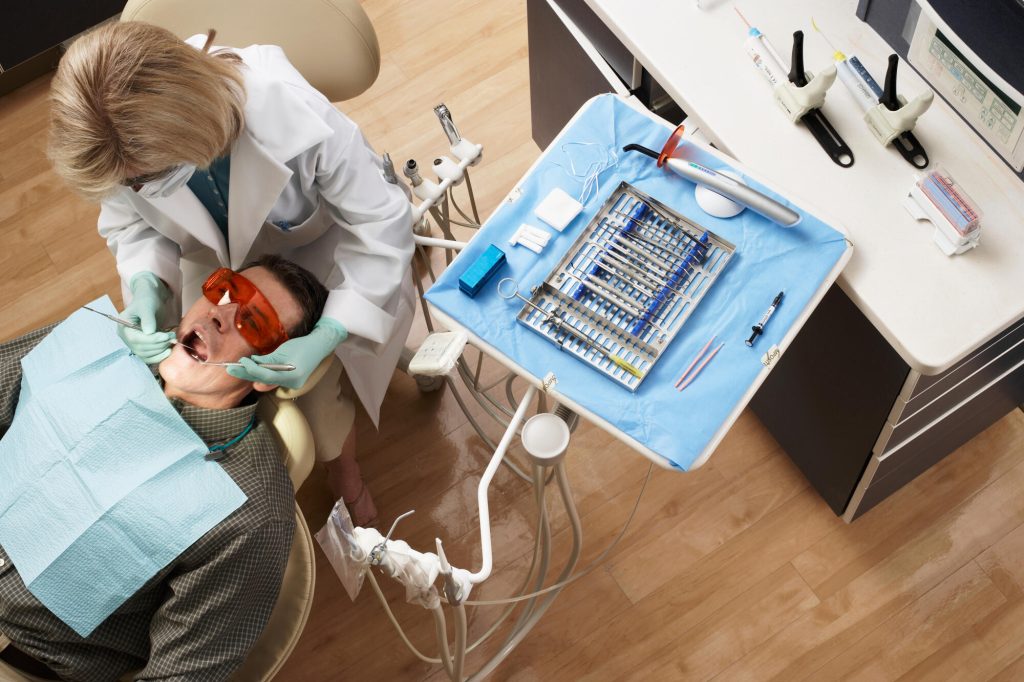Have you ever thought about how much your smile says about your health? Teeth and gums are more than just part of appearance; they play a role in overall well-being.
Poor oral habits can affect digestion, confidence, and even the heart. Many people overlook preventative dental care until problems arise.
Yet, prevention is easier, less costly, and less painful than treatment. Small daily habits add up over time.
This guide will show how preventative dental care supports overall wellness in powerful ways. Keep on reading!
Understanding Preventive Dental Care
If you want to keep your oral health in good shape, you need to do preventive dental care. This includes flossing, brushing, regular checkups, and having your teeth cleaned by a professional. Following these easy steps can help keep you from getting cavities, gum disease, and even losing your teeth.
Being proactive instead of waiting for pain or discomfort to happen is what prevention is all about. A lot of dental problems happen slowly and don’t show any symptoms at first.
Getting into bad habits early on can help keep these problems from getting worse. You can avoid expensive treatments with preventive care, which also saves you money. Strong habits for avoiding problems set the stage for good oral health for life.
The Connection Between Oral Health and Overall Wellness
Good oral health is linked to good overall health. People who have gum disease are more likely to get heart disease, diabetes, and breathing problems.
Bacteria in the mouth can get into the bloodstream and impact different parts of the body. Healthy teeth and gums that are healthy also help you chew and digest food. Over time, not taking care of your teeth and gums may weaken their strength.
Taking care of your mouth is important for your overall health, not just to avoid cavities. Regular dental care lowers the risk of getting long-term diseases. A healthy smile really does help keep your body healthy.
Building Strong Daily Habits
Preventive dental care is based on habits that you do every day. Plaque can lead to cavities, so brush your teeth at least twice a day to get rid of it. When you floss once a day, you get rid of food and bacteria stuck between your teeth.
Mouthwash can help get rid of germs and make your breath smell better. Tooth cavities can be avoided by limiting sugary drinks and snacks. Throughout the day, drinking water keeps the mouth moist and gets rid of acids.
More important than being perfect at these things is being consistent with them. Once you get into good habits, taking care of your teeth is easy and effective. They are the first thing you should do to keep your teeth healthy.
The Importance of Regular Dental Checkups
Checkups are a key part of prevention. Dentists can spot problems before they become painful or serious. Professional cleanings remove hardened plaque that brushing and flossing miss.
Regular visits also include screenings for oral cancer and gum disease. These appointments are usually recommended every six months. For those with higher risks, dentists may suggest more frequent visits.
Seeing a dentist in northeast Philadelphia, for instance, ensures professional guidance tailored to local needs. These visits provide peace of mind and protect long-term health. Prevention is stronger with professional support.
Preventing Tooth Decay Early
Caries starts small, but if you don’t stop it early, it can turn into painful cavities. The goal of preventive care is to stop decay before it hurts the enamel. Sealants, fluoride treatments, and brushing your teeth every day all help make them stronger.
Parents can start these habits with their kids at a young age. Teeth that are healthy as babies help build strong teeth as adults.
Limiting sugar in your diet is a big part of keeping cavities away. For early detection, it’s important to go to the dentist. If you stop decay early, you can avoid pain and expensive fillings later on.
Protecting Against Gum Disease
One of the most common dental problems in the world is gum disease. When it starts, your gums will be red and swollen, which is a mild form of gingivitis. It can turn into periodontitis if you don’t treat it, which can cause you to lose your teeth.
When you get preventive dental care, gum disease is stopped before it gets worse. It’s important to floss every day and get your teeth cleaned regularly.
Stress, smoking, and a bad diet can all weaken gums. Taking care of your gums is also good for your heart and lowers inflammation in the body. Taking care of your gums is an important part of staying healthy in general.
Supporting Healthy Digestion
A lot of the work that goes into digesting food is done by the teeth. When your teeth are strong and healthy, you can chew food better and more easily. Missing teeth or teeth that hurt can make it hard to eat certain foods and lead to poor nutrition.
Taking care of your teeth regularly will keep them strong for life. If you don’t take care of your teeth, your digestive problems may get worse.
Chewing properly also helps keep your gut healthy and absorb nutrients. Taking care of your mouth can help your digestive system stay healthy. Taking care of things ahead of time can protect teeth and the way the body breaks down food.
Boosting Confidence and Self-Esteem
People often feel more confident in social and professional situations when they have a bright, healthy smile. Taking care of your teeth before they get cavities helps keep them white, clean, and free of decay. Being able to talk to someone while having fresh breath also helps.
Taking care of your teeth and gums can make you feel better about your confidence. People can feel bad about themselves when they have cavities, gum disease, or stained teeth.
These problems are less likely to happen when preventative measures are used. Lack of confidence can hurt your mental health and relationships. Regular preventative dental care is the first step to a confident smile.
Saving Money with Prevention
Preventive dental care is more affordable than emergency treatments. Small investments in toothbrushes, floss, and regular checkups pay off in the long run. Filling a cavity or treating gum disease can be costly.
More advanced treatments like root canals or implants are even more expensive. Prevention reduces the chance of needing such procedures.
Dental insurance often covers checkups and cleanings at little or no cost. Taking advantage of this coverage saves even more. Preventive care is both smart for health and kind to the wallet.
Oral Health for Children
Children benefit greatly from early preventative dental care. Baby teeth need care because they hold space for adult teeth. Parents should guide children in brushing and flossing daily.
Routine dental visits help children become comfortable with dentists. Sealants and fluoride treatments can prevent cavities in young teeth.
Teaching kids healthy habits early creates lifelong benefits. Preventive care also builds awareness of the importance of oral hygiene. Strong foundations in childhood support lifelong oral health and wellness.
Oral Health for Seniors
Seniors often face unique dental challenges such as dry mouth, gum disease, and tooth loss. Preventive care becomes even more important as people age. Regular visits can help detect issues caused by medications or chronic illnesses.
Good oral hygiene supports chewing, speech, and overall quality of life. Dentures and implants also need care to stay clean and functional.
Seniors who prioritize prevention maintain more independence and comfort. Oral health affects nutrition, which is critical in later years. Prevention supports aging with dignity and confidence.
The Role of Nutrition in Oral Health
Nutrition plays a key role in preventing oral disease. Foods rich in calcium, such as dairy and leafy greens, strengthen teeth. Vitamin C supports healthy gums and tissue repair.
Crunchy fruits and vegetables naturally clean teeth and stimulate saliva. Avoiding sugary snacks helps reduce cavity risks.
Drinking water keeps the mouth hydrated and washes away bacteria. Balanced meals provide the building blocks for strong teeth and gums.
Preventing Bad Breath Naturally
Bad breath, also called halitosis, can be embarrassing and uncomfortable. Preventive dental care helps stop it before it becomes a problem. Brushing and flossing remove food particles that cause odors.
Staying hydrated prevents dry mouth, which often leads to bad breath. Avoiding strong-smelling foods like garlic also helps.
Regular dental cleanings remove plaque and bacterial buildup. Sometimes bad breath signals gum disease or other issues.
The Impact of Lifestyle Choices
Lifestyle choices affect oral health in many ways. Smoking and tobacco use increase the risk of gum disease and oral cancer.
Excessive alcohol can also dry the mouth and harm tissues. Stress may cause teeth grinding, leading to damage. Choosing water instead of sugary drinks protects teeth.
Getting enough sleep supports immune function, which helps fight oral bacteria. Exercise improves circulation, which benefits the gums. Small daily choices add up to big impacts.
The Importance of Regular Dental Checkups for General Health
Cleaning and flossing your teeth regularly is an important part of staying healthy overall. Protection for teeth and gums, helps with digestion, and is even a confidence booster. Consistent daily habits and regular checkups lower the chances of getting a serious illness.
Staying healthy and saving money are all benefits of prevention. Careful consideration of diet, lifestyle, and technology can make prevention even easier.
Regular dental care is good for everyone, from kids to seniors. Giving prevention top priority will ensure long-lasting health.
Did you like this guide? Great! Please browse our website for more!







